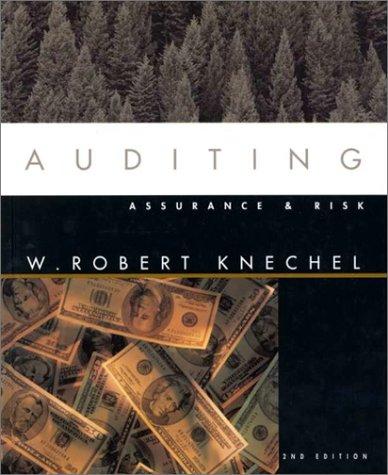Answered step by step
Verified Expert Solution
Question
1 Approved Answer
use T accounts on the next page to record the following entries for jen manufaturing using job order cost system. ACCT 2071 - CHAPTER 12



use T accounts on the next page to record the following entries for jen manufaturing using job order cost system.
ACCT 2071 - CHAPTER 12 - Journal Exercise - JOB ORDER COST SYSTEM EXERCISE 1: Use the T-accounts on the next page to record the following entries for Jen Manufacturing using a Job Order Cost system. Be sure to carefully review the text and other resources before attempting this problem. 1) Purchased raw materials on account costing $20,000 2) Materials costing $13,000 were requisitioned for use in making specific customer jobs (Job 1: $6,000 and Job 2: $7,000). An additional $1,000 in materials was requisitioned for general factory use. 3) A total of $17,300 was incurred in wages for the period to be paid next month. Jen Manufacturing determined that $7,800 wages were payable to direct laborers (Job 1: $4,000 and Job 2: $3,800). An additional $9,500 were payable to factory employees who do not work directly on Jen's products. 4) Utilities expenses on the factory totaling $5,000 were paid in cash, 5) $3,700 in depreciation was recorded on factory machines. 6) Jen uses machine hours to apply Manufacturing Overhead to production. The Estimated Manufacturing Overhead for the year was $250,000. The Estimated Machine Hours for the year were 5,000 hours. a. Calculate the Predetermined Overhead Allocation Rate: Estimated MOH 1 Estimated Activity Base Predetermined Overhead Rate $ 250,000 = $50 per Machine Hour E Scoo Machine Hours b. Use the Predetermined Overhead Allocation Rate to apply Manufacturing Overhead to production. Jen's actual usage was 400 machine hours during the period (Job 1: 150 hours and Job 2: 250 hours). Record your entries in the T-accounts. Job 1 Allocation: $50 per Machine hour X 150 machine hours = $ 7500 Job 2 Allocation: per Machine hour X250 machine hours = $ 12,500 $ 50 7) Job 1 was completed and transferred to Finished Goods Inventory. Use the Job Cost Sheet below to summarize the Job 1 costs. Job Cost Sheet: Direct Direct Labor Allocated TOTAL Materials MOH $ Job 1: $17500 booo 4000 7500 8) Job 1 Products were sold on account to customers for $55,000. The cost of these products was calculated in Step 7. Be sure to record both entries (ie the sale and the cost). Cash Raw Materials Inventory Beg:25,000 Work in Process Inventory Manufacturing Overhead Beg: 300 TTTT Accounts Receivable Accumulated Depreciation Finished Goods Inventory Wages Payable Accounts Payable Sales Cost of Goods Sold I The beginning balance in the Manufacturing Overhead account was $300. After all of the entries have been recorded for the period, what is the balance in the Manufacturing Overhead account? Is the balance Under or Over-Allocated? $ Manufacturing Overhead Balance? Under or Over-Allocated? 9) Make the adjusting entry to close out the Manufacturing Overhead balance to Cost of Goods Sold. EXERCISE 2: Now, record the following entries for the Finishing department for 2019. Use the T. accounts on the last page. If you get stuck, be sure to carefully review the previous example and the text and other resources. 6. Transferred $42.000 of raw materials to the Finishing department for use in the Finishing phase. 7. Paid $74,000 cash to Finishing department employees working directly with the product. 8. The Finishing department incurred 11,000 of direct labor hours during 2019. Use the same Predetermined Overhead Rate (calculated in the completed example above) to allocate overhead to the WIP-Finishing account and record the entry. DDC Step by Step Solution
There are 3 Steps involved in it
Step: 1

Get Instant Access to Expert-Tailored Solutions
See step-by-step solutions with expert insights and AI powered tools for academic success
Step: 2

Step: 3

Ace Your Homework with AI
Get the answers you need in no time with our AI-driven, step-by-step assistance
Get Started


